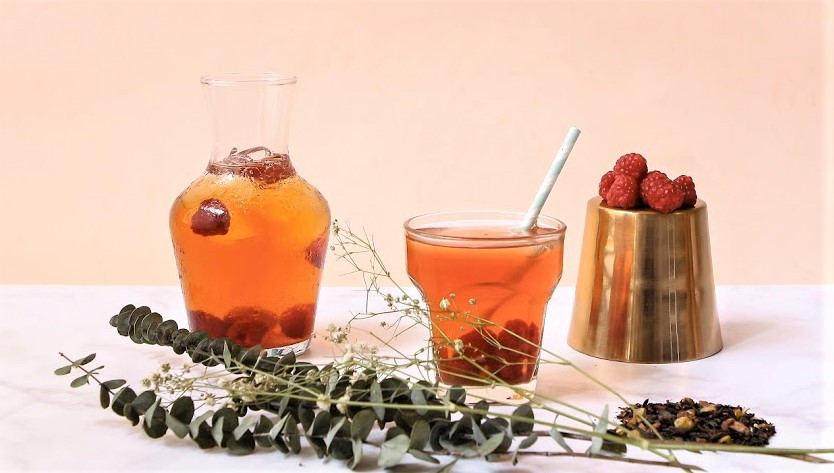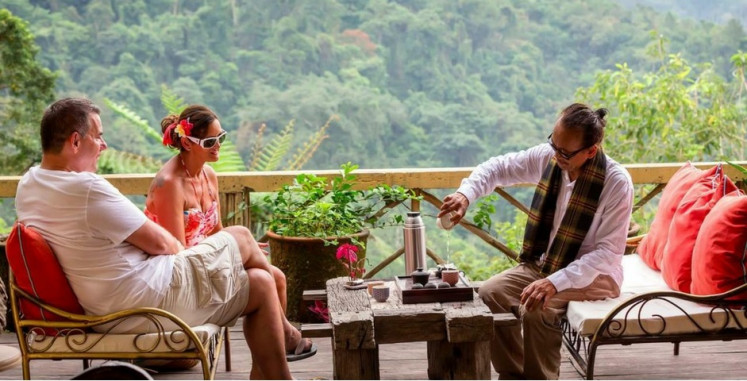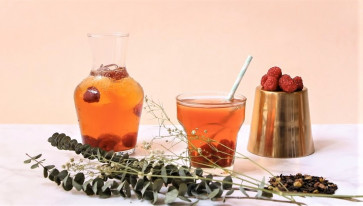Popular Reads
Top Results
Can't find what you're looking for?
View all search resultsPopular Reads
Top Results
Can't find what you're looking for?
View all search resultsFrom farm to cup: The delights of Balinese homegrown teas
Quietly, Bali has been growing its own teas, which have been making inroads into the island’s hospitality industry.
Change text size
Gift Premium Articles
to Anyone
Two establishments have been notable in the development of homegrown tea in Bali: D’Wan Tea Mountain Side and Brew Me.
The first is a mountainous holiday villa in Jatiluwih, a village in Penebel subdistrict in Tabanan district, with a private tea plantation.
The plantation was the first of its kind on the island, offering white, green and black teas to guests who stay there.
Tea time: D'Wan Tea Mountain Side owner Wawan Setiawan (right) uses a gaiwan to brew tea in front of two guests. (Courtesy of all-balihotels.net/-)
Fresh mountain air, quiet natural surroundings and a rustic, rural ambience makes it a great place to have afternoon tea and local food sourced from the villa’s own plantation, which, according to the owner, Wawan Setiawan, was not only the first ever tea plantation on the island but the first one that is centered on biodynamic cultivation.
The previous owner of Warung Tapas in Legian said the oldest tea shrubs in his plantation were 13 years old and the youngest ones 2 years old. Sourced from Bandung-based tea specialist Musthopa Sarifudin Fattah, who trained and educated Wawan on tea making and processing, all of the varieties are Chinese shrubs (Camellia sinensis var sinensis).
“They are more suitable for the soil and water conditions of the land because unlike the assamica variety, they don’t need much water and humus,” Wawan explained.




















